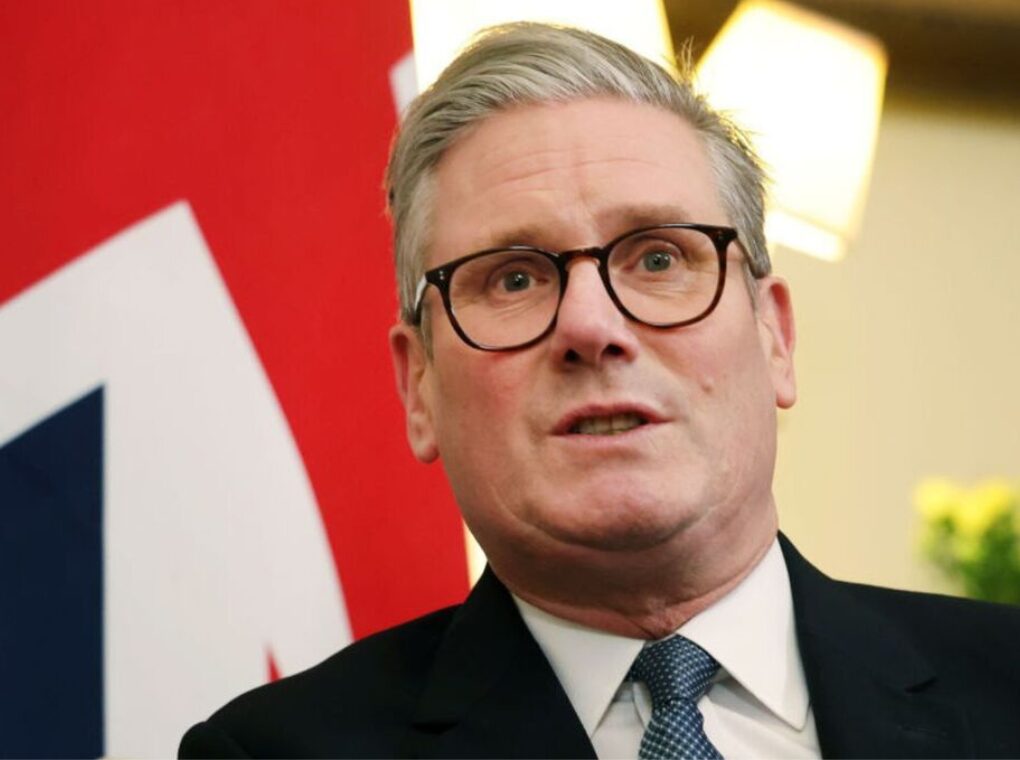Thirteen months ago, Labour leader Keir Starmer promised a new era for Britain—one defined by secure borders, safer communities, and economic renewal. Instead, many now see the country facing an alarming reversal: uncontrolled immigration, soaring crime rates, rising Islamist extremism, grooming gang scandals, restrictive online censorship, and political chaos in London.
This alarm extends beyond the UK’s shores. Elon Musk has labeled Britain a “tyrannical police state,” U.S. Vice President J.D. Vance warns the country is “turning into an Islamist state,” and President Donald Trump declares Britain has “lost its edge entirely.” Despite their differing backgrounds, these voices share one warning: Britain is in deep trouble.
Immigration Crisis Deepens
Starmer vowed to end dangerous Channel crossings and dismantle the criminal gangs facilitating illegal immigration. Yet in the first half of 2025, nearly 20,000 people crossed illegally—a new record. Although net migration has decreased from a historic high of 745,000 to 431,000 annually, the numbers still strain Britain’s infrastructure.
Housing shortages are worsening, the NHS is overstretched, and critics argue the country’s capacity is at breaking point. Many arrivals come from regions influenced by Islamist ideologies, fuelling cultural tensions politicians are reluctant to address.
Crime and Islamist Influence on the Rise
Crime costs the UK an estimated £250 billion annually. Over 12% of inmates are foreign nationals, and knife crime is escalating in major cities. Even more concerning is the growing influence of Islamist extremism—manifested through radical protests and political intimidation.
Many perceive a troubling double standard under Starmer’s leadership: ordinary citizens face arrests for expressing controversial views, while Islamist extremist demonstrations go unchecked.
The Growing Political Influence of Muslim Leaders
Muslim political leaders are increasingly winning seats in councils, Parliament, and mayoralties. While some see this as positive representation, others fear it signals the creeping introduction of sectarian politics.
Allegations persist that some leaders support Islamist-linked organizations and promote agendas incompatible with British secular values. The concern is that Britain’s laws and cultural foundations are being undermined from within.
Erosion of Free Speech through Online Censorship
Britain’s Online Safety Act now empowers police to detain individuals over “harmful” social media content, including legitimate political opinions. Recent arrests for comments on immigration, Islam, and government policy demonstrate a disturbing erosion of free speech—once a defining British principle.
Grooming Gang Scandal and Justice Delayed
The grooming gang scandals—years of abuse and exploitation of young English girls by Pakistani-Muslim gangs—continue to haunt the nation. Starmer, as Director of Public Prosecutions, resisted calls for a national inquiry until public pressure forced his hand in June 2025. Survivors argue justice has been delayed too long, sacrificed on the altar of political correctness.
Silencing Critics Instead of Addressing Crime
Rather than targeting criminals, the government has arrested outspoken critic Tommy Robinson on questionable charges. Robinson’s vocal opposition to grooming gangs and Islamist extremism has made him a symbol of the state’s willingness to silence dissent instead of confronting difficult truths.
Economic Stagnation and Rising Burdens
Britain’s economy is stagnating. GDP growth is flat, taxes are increasing, and investment is declining. Small businesses struggle under mounting bureaucracy, while wealthier citizens seek opportunities abroad. For many, rising costs coincide with shrinking prospects—a bleak economic landscape.
Foreign Policy in Disarray
On the international stage, Starmer’s government follows a globalist script with no clear strategy or coherent vision. Britain’s influence is waning as decisions appear haphazard and disconnected from national interests.
A Changing Cultural Landscape
London’s Muslim population now numbers around 4 million, roughly 6% of the UK’s total, with 10% of schoolchildren identifying as Muslim. This demographic shift reflects a profound cultural transformation. Yet open discussion is often stifled by accusations of bigotry, while core British values—free speech, secular law, gender equality—face quiet erosion.
Under Mayor Sadiq Khan, London struggles with persistent crime, including knife violence, and the absence of accessible police stations in multiple boroughs. Housing targets remain unmet. On a recent visit to Scotland, Donald Trump renewed his criticism of Khan, calling him a “nasty person” who has done a “terrible job,” a sentiment echoed by many.
Political Engineering and the Future of Democracy
Starmer’s push to lower the voting age to 16 is promoted as youth empowerment but is viewed by critics as a tactic to engineer a more left-leaning electorate before young people enter the workforce or pay taxes. Many question whether teenagers possess the maturity to make informed decisions about the country’s future.
Polls now show Reform UK leading Labour by 31% to 22%, with Starmer’s approval rating plummeting. Over half the population believes Britain is broken and calls for an early election.
A Nation at a Turning Point
Unchecked immigration, rising crime, growing Islamist influence, shrinking free speech, economic malaise, and the erosion of Western values paint a troubling picture. Leadership—from Westminster to City Hall—is faltering as the clock runs out. The question is no longer if Britain is in crisis, but whether those in power will act before the nation is irrevocably changed.
